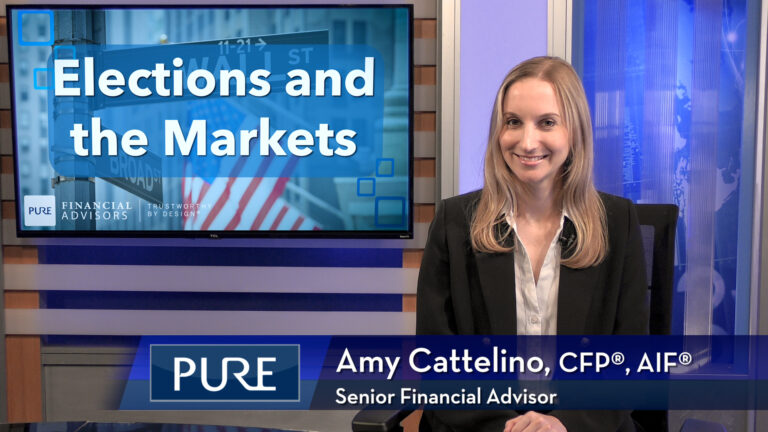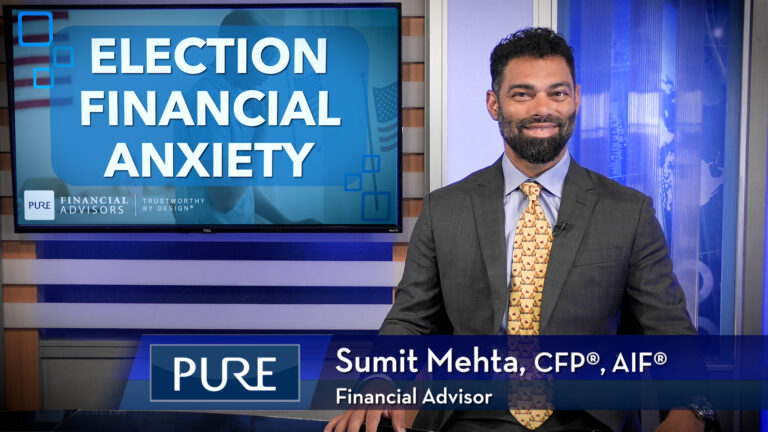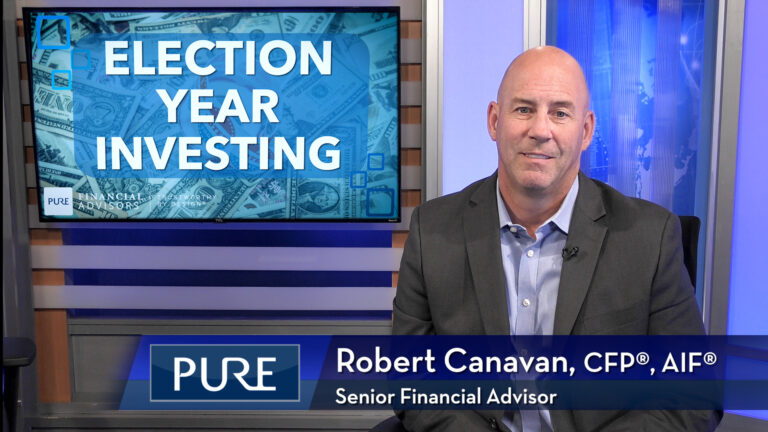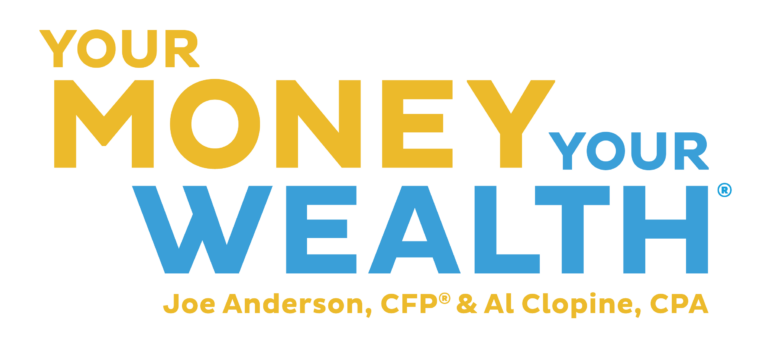Welcome to 2024! Improving your financial situation often tops the list of New Year’s resolutions. Pure’s Senior Financial Planner, Kendle Smith, CFP®, AIF®, shares five easy tips to set you on the right path to financial success:
- Track your Spending
- Consolidate Accounts
- Create or Review Your Financial Plan
- Pay Down Debt
- Get Started Today
FREE GUIDE | Financial New Year’s Resolution Guide
Transcript
It’s the new year and it’s time for making resolutions. Here are 5 tips to help you get your finances in order.
Tip # 1: Track your Spending
I’ve had the following conversation with hundreds of people in the past few years. I ask them how much they spend either monthly or annually and I usually get one of two answers. The second most common answer is, “Too much” and the most common answer is, “I have no idea”. So, while it is common to not track your spending, I do recommend that you give it a try. It’s been my experience that when people track their spending, they’re better able to control their spending. How do you know if you have enough to retire if you don’t know how much income you need in retirement? Knowing your expenses can help you become proactive in your retirement planning. How do you track your spending? You can do it the old-fashioned way – pen and paper or use an Excel spreadsheet. Write down or type in every expense you have. You might say, “That sounds boring, tedious, and terrible.” I agree. That doesn’t sound fun. Fortunately, there are some automated tools that can do this for you. Some of these programs cost some money, some are free. You can connect your accounts to the program (like your bank accounts and credit cards), and the program tracks your expenses for you. Many of these programs categorize your expenses for you and can help you create budgets.
Tip # 2: Consolidate Accounts
Investment accounts and retirement accounts can accumulate and become like a junk drawer – you know, the drawer in your kitchen that somehow manages to collect all kinds of random things. Pretty soon you have no idea what’s in the drawer and where to find anything. I’ve met with someone who had over a dozen retirement accounts – various 401k’s from prior jobs, various Roth IRAs and IRAs he started at different investment companies. I asked him how he keeps track of them all and manages them all, and he said he doesn’t. It’s really difficult to keep track of what you have – let alone manage what you have, if you have too many accounts. Consolidating accounts also reduces the amount of statements and tax forms you get each year.
Tip # 3: Create or Review Your Financial Plan
Are you on track to achieve your financial goals? Are you saving enough? Are you saving into the right accounts? Are you doing everything you can to set yourself up to be as tax efficient as possible? Are your investments set up correctly? Is there rebalancing that needs to be done, or tax-loss harvesting? Do you have the proper amount of insurance coverages, and do you have the proper estate planning documents in order?
Tip #4: Pay Down Debt
If you have credit card debt, create a plan to attack it. Decide what you’re willing to sacrifice to get out from under it. Does it make sense to reduce discretionary spending? Do you have any subscriptions you’re not using or that you can cut out? Maybe work more hours or ask for a raise. Consider consolidating the credit card debt to a new credit card that offers 0% interest on balance transfers.
Tip # 5: Get Started Today
Newton’s 1st law states that an object at rest remains at rest unless acted on by an outside force. It also states that an object in motion stays in motion unless acted on by an outside force. This principle of inertia applies to getting your finances in order too. If you’re doing nothing to get your finances in order, it’s very easy to stay that way. It may feel overwhelming and impossible, but as you take some step, any step, to get moving, it will get easier to maintain that momentum.
I’ve also got a bonus tip for you: get help. It’s easier to get the job done when you have someone to help motivate you and keep you accountable. If you’d like professional assistance, take advantage of our free financial assessment.
Subscribe to our YouTube channel.
IMPORTANT DISCLOSURES:
• Investment Advisory and Financial Planning Services are offered through Pure Financial Advisors, LLC, a Registered Investment Advisor.
• Pure Financial Advisors LLC does not offer tax or legal advice. Consult with your tax advisor or attorney regarding specific situations.
• Opinions expressed are subject to change without notice and are not intended as investment advice or to predict future performance.
• Investing involves risk including the potential loss of principal. No investment strategy can guarantee a profit or protect against loss in periods of declining values.
• All information is believed to be from reliable sources; however, we make no representation as to its completeness or accuracy.
• Intended for educational purposes only and are not intended as individualized advice or a guarantee that you will achieve a desired result. Before implementing any strategies discussed you should consult your tax and financial advisors.
CFP® – The CERTIFIED FINANCIAL PLANNER™ certification is by the Certified Financial Planner Board of Standards, Inc. To attain the right to use the CFP® designation, an individual must satisfactorily fulfill education, experience and ethics requirements as well as pass a comprehensive exam. Thirty hours of continuing education is required every two years to maintain the designation.
AIF® – Accredited Investment Fiduciary designation is administered by the Center for Fiduciary Studies fi360. To receive the AIF Designation, an individual must meet prerequisite criteria, complete a training program, and pass a comprehensive examination. Six hours of continuing education is required annually to maintain the designation.














